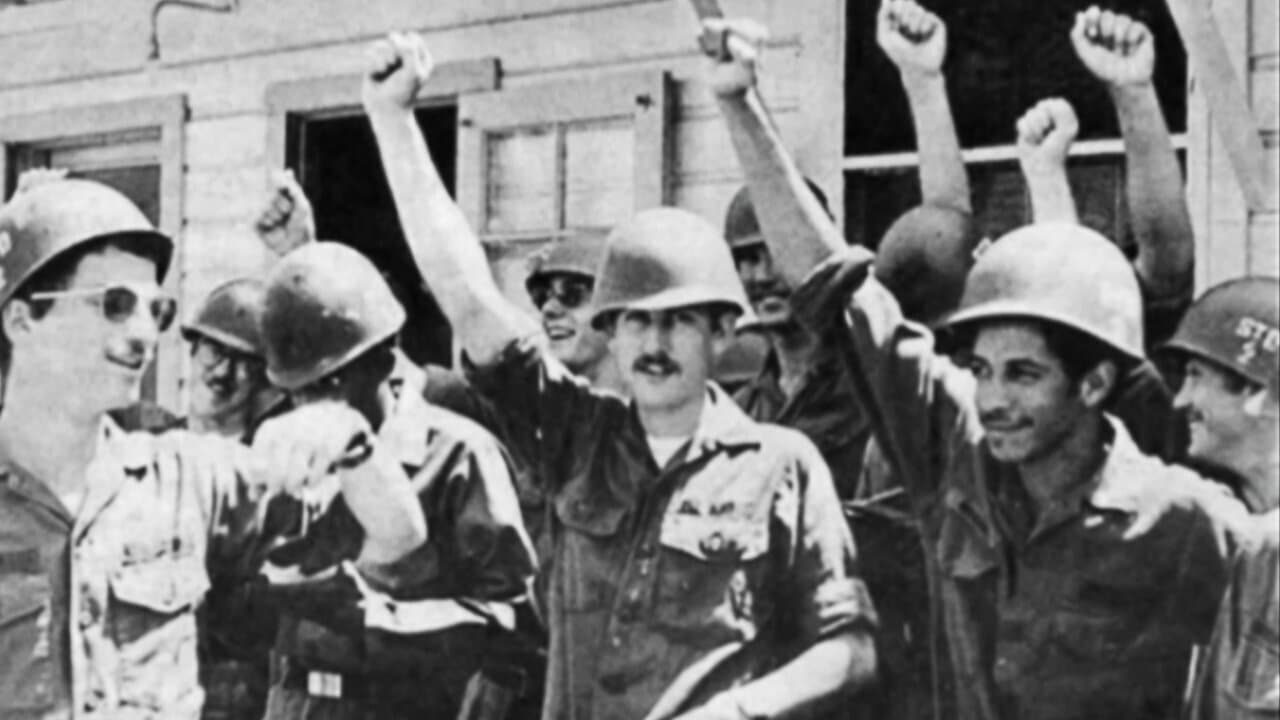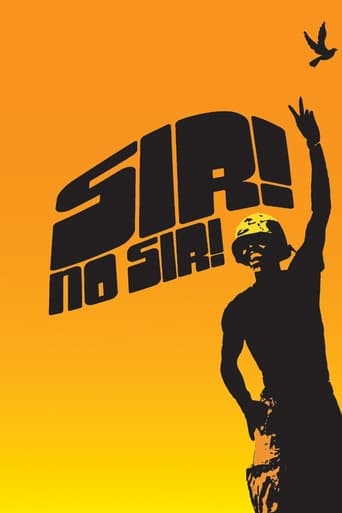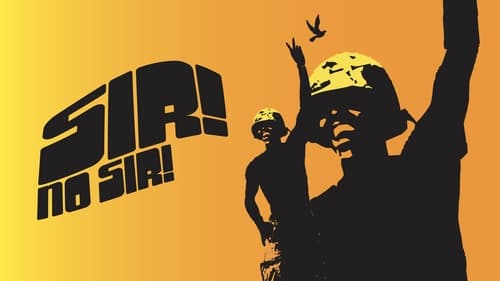


Yawn. Poorly Filmed Snooze Fest.
... View MoreThis is one of the few movies I've ever seen where the whole audience broke into spontaneous, loud applause a third of the way in.
... View MoreIf you like to be scared, if you like to laugh, and if you like to learn a thing or two at the movies, this absolutely cannot be missed.
... View MoreIf you're interested in the topic at hand, you should just watch it and judge yourself because the reviews have gone very biased by people that didn't even watch it and just hate (or love) the creator. I liked it, it was well written, narrated, and directed and it was about a topic that interests me.
... View MoreI thought I knew a lot about the Vietnam War protest movement, but obviously, not enough.I knew some soldiers had thrown their medals on the congressional steps and gone to peace marches, but not that thousands of American soldiers were actively involved in ending the war from within. And not because they were afraid to die or get hurt, but because they realized that the Vietnam War was immoral, illegal and they were killing people in a country who had never done anything against the United States THEY are the ones who deserve most of the credit for stopping the Vietnam war, not the civilians at home. The soldiers risked beatings, imprisonment and even death to protest the lies and atrocities of the Vietnam war, not for financial gain or glory, but to preserve their sense of morality. They showed true bravery--saying "NO MORE!" and were able to stop the bloodshed--for at least a few years. Thanks, guys!!!! This documentary also discusses the lie spread by right-wingers that protesters spit on returning soldiers, even ones on stretchers. A former Vietnam Vet investigated it thoroughly-- it DID NOT happen! Every American soldier in Iraq should see this. It's from the mouths of thousands of their own.On a technical level: The rare vintage footage is mastered at a very high level--audio is clean and clear. Interesting soundtrack, not the "Oldies" I'd expected, but modern, edgy--which was the perfect choice.And, oh, yeah, just in case you don't get the message from the cover, this is not a pro-con view of the Vietnam War. This film is definitely Anti-war.
... View MoreBy 1968 the civilian anti-Vietnam war movement was beginning to expand, young men were escaping to Canada to avoid the draft, and former combatants were starting to protest the war. Like most Americans, I had no idea that at the same time there was a snowballing anti-war movement taking place right within the ranks of active duty military personnel.Awareness of the disconnect between Pentagon and White House rhetoric, on the one hand, and realities on the ground in Vietnam, on the other, especially our massive extermination of civilian lives, began to seep through every pore within the military, prompting protests that were strikingly varied, creative, and, while often made up of small, localized actions, collectively impressive. To the point that by 1971, as one army colonel put it, the active GI anti-war rebellion had "infested the entire armed services." David Zeiger, writing and directing his first feature for the big screen, does a splendid job of pulling together the stories of participants in this unprecedented, diffuse, largely unorganized, multicentered movement. There are plenty of talking heads, but they aren't experts, they're people reminiscing today about their personal antiwar activities 35 years ago while on active duty. (We also see old shots of these same people when they were young and in uniform.) We hear from participants in actions as diverse as the following examples indicate: Proliferation of forbidden antiwar newspapers on military bases; Passive refusal to participate in antiriot actions at the 1968 Chicago Democratic Party Presidential Convention; Boycott of a chain of jewelry stores located near military bases that pandered to men about to go to Vietnam (Their selling point: the prospect of dying in Vietnam made it urgent to buy a bauble for your wife or mother now, before you go. The ads were juxtaposed with photos of soldiers who had recently died).And more: An Air Force Intelligence group based in Thailand that refused to transmit further intelligence because it was being used as a basis for undisclosed Cambodian bombings; A group of active duty Army personnel that swore not to fight, rioting after their mass arrest and incarceration in an overcrowded Army stockade; A physician - a dermatologist - who refused to continue training Special Forces medics to treat skin infections of Vietnamese children part of a "win the hearts and minds" campaign once he learned that we were killing untold thousands of civilians by napalm bombing of villages; Pilots refusing to fly bombing raids; The first major mass public testimony by former combatants about atrocities against civilians, at a 3-day conclave in 1971, in Detroit (memorialized in the film, "Winter Soldier").These stories and many others are told here, involving officers as well as grunts, from every branch of the service. What is so compelling is that the passion of these people has not ebbed despite all the years that have passed, and the many sacrifices and punishments they absorbed consequent to taking a stand. Perhaps there are also people out there who stood up against the war from within the ranks and later regretted doing so. We don't meet any of them.We do meet Jane Fonda, who reminisces with evident conviction today, about her participation, along with Donald Sutherland and other entertainers, in the unauthorized "FTA" variety shows they conducted near military bases during the Vietnam war, antiwar shows that roused huge crowds as they mocked the Bob Hope tours.The men and women inside the military and among civilians throughout this country who bravely spoke truth to power during and after the Vietnam war gave the U.S. peace movement its best opportunity since the Civil War to acknowledge the costs of war and seek a better way. Western Europe figured it out. But we didn't. Lessons learned became lessons lost. And, God help us, look where we are today. My grade: 8/10 B+.
... View MoreI sat in my college dorm room in 1972, after student deferments had been discontinued under political pressure, and I watched TV with my roommates as the man pulled birthdays out of a bowl in order to put them in numerical order to determine who would get called up first, second, and so on, according to their date of birth. Some of us drew lower numbers and started to sweat, not knowing if we would end up running to Canada, maybe forever, or if we would try to find a doctor who would give us an out (flat feet, allergies, homosexuality), but the medical excuses were getting harder and harder to pull off. By 1972, the draft boards were getting tired of everybody claiming to be gay or psychotic, so they drafted the weirdos and sissies anyway. It was a time when the fear became so palpable, that it drove me bats insane, so I hope people can understand why some of us protested, even violently. Now, to see that soldiers in Vietnam resisted the war even after they had been sent over there comes as something of a revelation because that fact has been glossed over by revisionist historians working for the power elite. This documentary shows how some guys resisted fighting and were court-martialed for it, in some cases being put on trial for treason, with a possible death sentence. Then there were the underground presses. Tons of homemade newspapers were circulated under threat of dishonorable discharge or even court martial for merely having a copy of a rebellious rag. The GI's who published these things were heroes in the truest sense. Jane Fonda, who is mostly remembered for her visit to Hanoi, was actually in Nam entertaining the troops in a bizarre parallel to Bob Hope. He would put on "patriotic" USO shows while Fonda and her troupe were invited by soldiers who liked her politics better. And it drove the officers crazy, but they couldn't stop her from going where she was invited. God has blessed me by allowing me to meet Ms. Fonda. She was presenting this film in NYC, and she hung out at the cafe in the IFC movie theater, where it is now playing. I pulled out my draft card, which I have been carrying in my wallet for 34 years. I asked her to autograph it, and she said, "Oh, cool!" Her signature is on the card right above that of S. Witherspoon, the local draft board administrator. Email me if you want me to send you a jpeg of this little artifact of history.
... View MoreSir! No Sir! (2005) written and directed by David Zeiger is the "must-see" documentary of 2005. The film tells the story of the GI resistance movement during the Vietnam war.I'm a Vietnam-era veteran, and I was peripherally involved in the military-based resistance to the war. Although I certainly wasn't an important player, I knew enough about what was happening to attest that the depiction in "Sir! No Sir!" is accurate and balanced. (Most of my own anti-war activity took place when I was off duty and could participate in public peace demonstrations. The GI's who opposed the war when they were on active duty took much greater risks than I did.)Jane Fonda played a pivotal role in the anti-war movement, and she has a pivotal role in this movie. It's interesting that Ms. Fonda has--no doubt under pressure--retracted some of her statements and apologized for some of her anti-war activities. In the film she is not apologetic about her actions, and she clearly believes that what she did was right. I'm not sure which persona represents the real Jane Fonda. I hope it's the unashamed activist who was trying to save lives--both US and Vietnamese.The movie spends quite a bit of time discussing the famous story about returning GI's getting spit at by peace activists. I had always accepted this story as true. All the civilian peace activists I knew were in sympathy with the GI's--we opposed the generals and the Commander- in-Chief, Richard Nixon, as well as his chief adviser, Henry Kissinger. However, I assumed that a small splinter group of peace activists really did harass returning GI's. The film takes the position that the spitting episode never happened--it's an urban legend. I don't know the truth of this matter, but the fact that it may not have happened is certainly something worth thinking about.I was interested that the word "Iraq" never appeared in the film. However, the implications of this movie are obvious. We are again bogged down in an unpopular war that cannot be won. Before the war on Iraq started, many of us in the peace movement said, "It's going to be another Vietnam. U.S. GI's and Iraqis will die, and the country will be divided." The rest is history, as they say.In summary, this is an important documentary, whether or not you agree that the GI resistance movement was the correct and proper response to the war in Vietnam. See it and decide for yourself!
... View More